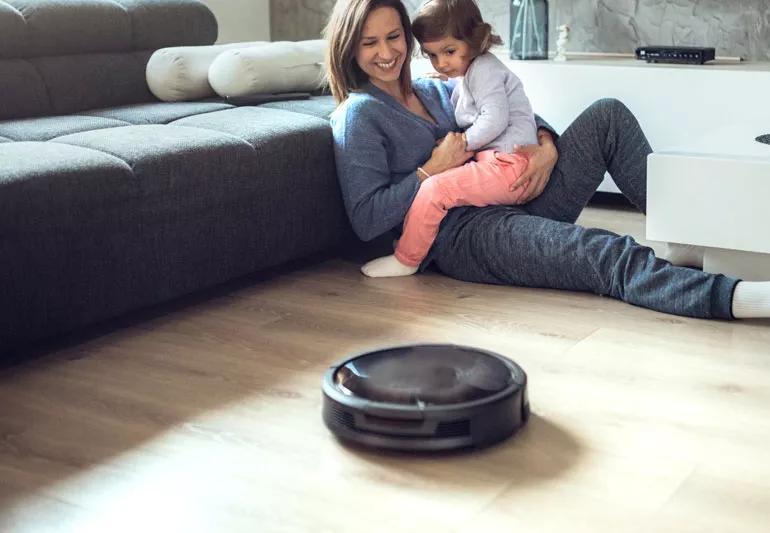Best ways to fight indoor air pollution

Image content: This image is available to view online.
View image online (https://assets.clevelandclinic.org/transform/7e3f01ad-3604-4f9b-94ea-6e856a2991cc/allergyHome-1127387735-770x533-1_jpg)
pollution free home
When you think of air pollution, you most likely don’t conjure up images of the inside of your home or office. But because we spend so much time indoors — especially in colder weather — keeping the air quality as clean as possible in your home, car and workplace is important for your health.
Advertisement
Cleveland Clinic is a non-profit academic medical center. Advertising on our site helps support our mission. We do not endorse non-Cleveland Clinic products or services. Policy
And, unfortunately, we bring most of those pollutants indoors ourselves.
Experts say that one of the most common indoor air pollutants is cigarette smoke.
“The residual gas and particles from cigarette smoke that settle pose health hazards, particularly in rooms with a lot of fabric or carpeting,” says pulmonologist Sumita Khatri, MD. “We all have heard of second-hand smoke; this is called third-hand smoke.”
She says the risks are disproportionately high in children, who are more likely to be playing on the ground, and in people with chronic heart and lung problems.
Electronic cigarettes are a similar source of pollution to consider, Dr. Khatri adds. The vapors emitted when someone smokes e-cigarettes contain volatile organic compounds, heavy metals and other chemicals linked to lung disease.
“Being smoke-free, including in the home, is your best approach,” she says.
Household cleaning supplies are another common cause of indoor pollution. Harsh chemicals that give off fumes can irritate your nose, mouth and lungs, as well as your skin.
“Those with sensitive lungs and upper airways, like people with asthma and chronic sinusitis, may notice their symptoms getting worse,” Dr. Khatri says.
Advertisement
The fumes can cause inflammation that can make it more difficult for people with chronic lung conditions to heal from infections. It can also worsen inflammation due to other triggers, such as allergies.
Dr. Khatri recommends using natural cleaning supplies and elbow grease to minimize risks.
Other indoor pollutants that exacerbate asthma or other chronic lung conditions include:
Indoor air pollution can increase a person’s chances of having flares of chronic lung problems, such as asthma or chronic obstructive pulmonary disease (COPD).
“In addition to worsening the symptoms of asthma and other chronic respiratory problems, indoor air pollution can also cause irritation of the nose, throat, eyes and lungs,” Dr. Khatri says. There are also likely longer-term effects from ongoing exposure that are more difficult to measure, such as the likelihood of lung cancer from radon exposure, as well as secondhand and thirdhand smoke.
Although opening windows helps ventilate your home, car or office, that’s not always possible due to allergies or extreme temperatures.
Consider using air filters and getting your HVAC (heating, ventilation and air conditioning systems) checked regularly.
Also, air purifiers and aromatherapy can often make air quality worse unless they are the right kind, Dr. Khatri says. They need to be HEPA (high-efficiency particulate arresting) air filters.
Fortunately, there are ways you can minimize air pollution in your home, car or at work, Dr. Khatri says. Try these simple steps:
Advertisement
Taking some simple precautions can help boost air quality in your home and improve your health.
Advertisement

Sign up for our Health Essentials emails for expert guidance on nutrition, fitness, sleep, skin care and more.
Learn more about our editorial process.
Advertisement
The type, quantity and duration of your exposure determines your risk of injury or illness
Benefits may go beyond breathing
Most recommended precautions center around minimizing bruising or swelling
Even one drink can have an impact on your cognitive function leading to slurred speech, blurred vision and impaired memory
Understand who may (and may not) benefit
Lorem ipsum dolor sit amet. Et odio Quis vel ipsam omnis eum alias deleniti et placeat impedit non voluptas galisum hic autem enim et cupiditate aliquid. Est beatae quidem non facilis autem ut commodi nisi aut tempore rerum et dolores voluptatem cum enim optio id sapiente quasi. Ad laboriosam officiis 33 cupiditate sequi ea voluptatum consectetur qui necessitatibus voluptate et quasi doloremque et facere explicabo quo explicabo officia
Type 2 diabetes isn’t inevitable with these dietary changes
Applying a hot or cold compress can help with pain
Pump up your iron intake with foods like tuna, tofu and turkey